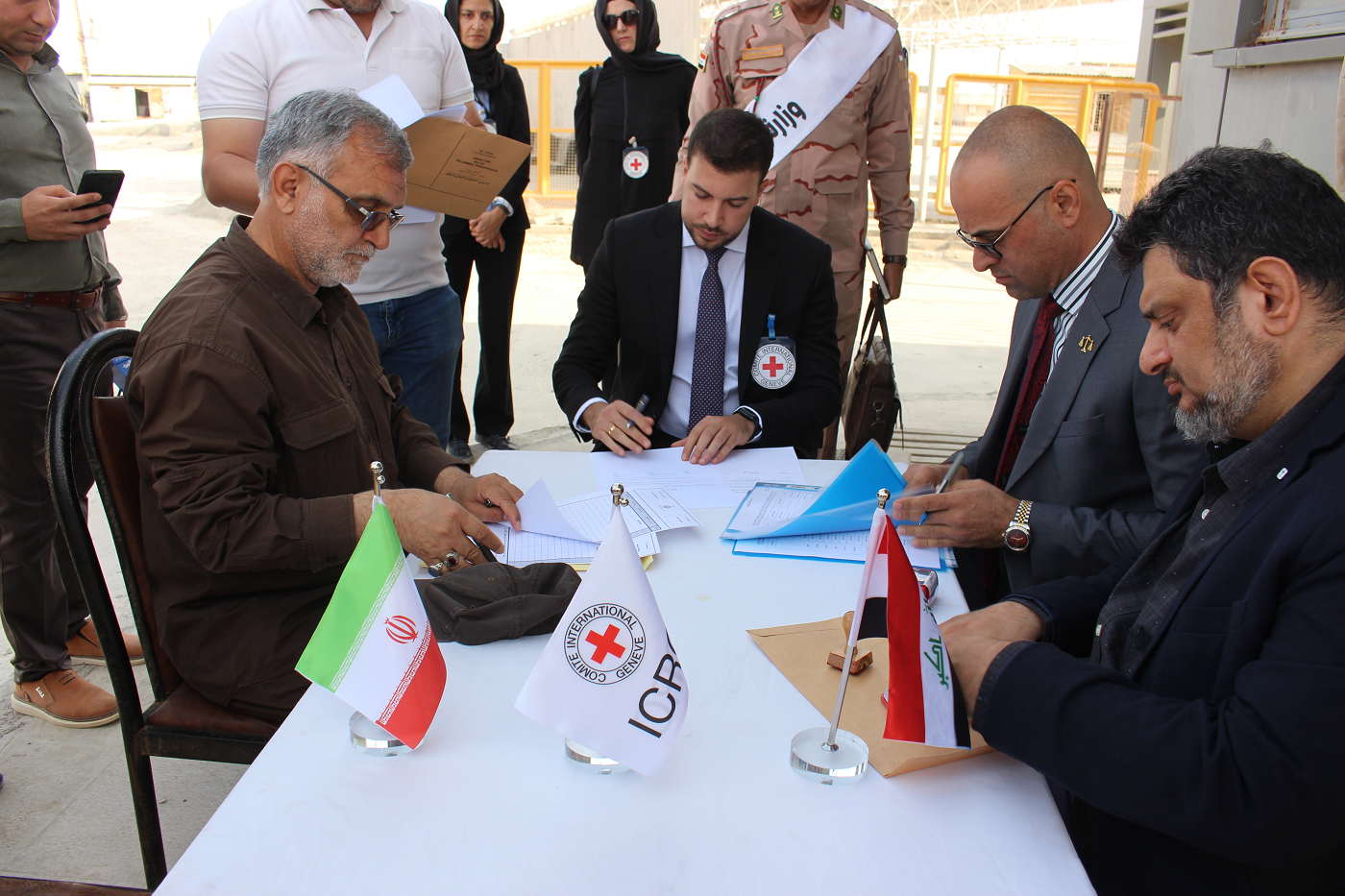The ICRC in Iran focuses on alleviating the suffering of families of missing and deceased persons from the 1980-1988 Iran-Iraq War. The devastating effects of this war continue to be felt decades later, as many of families still wait to learn what happened to their loved ones, unable to move on from this painful chapter of their lives. Through humanitarian efforts, the ICRC supports the Search and Recovery Committee of Islamic Republic of Iran General Staff of Armed Forces in locating missing soldiers, clarifying their fate and whereabouts, and repatriating the deceased to help families find closure.
During the time of the Iran-Iraq war, the ICRC visited prisoners held in camps on both sides to monitor their conditions of detention as well as helping them restore and maintain Family Links via Red Cross Messages. It also played the role of facilitator between the Iraqi and Iranian governments to help uncover the fate of those who have gone missing during the war.
Since the end of the Iran-Iraq War, the ICRC has played a key role by chairing the Tripartite Mechanism (comprising the Islamic Republic of Iran, the Republic of Iraq, and the ICRC) to encourage dialogue and support the efforts of both countries in resolving cases of missing soldiers. The ICRC has facilitated coordination between the two countries, organizing technical meetings and providing forensic expertise and material support to enhance the joint search and identification process, strengthen capacities, and improve responses.
The ICRC has also overseen the handover ceremonies of human remains at various border areas between Iran and Iraq, all while promoting the rights of missing persons and their families – the right to know, the right to dignified management of the dead, and the right to access/return of human remains.
In 2024, the ICRC:
- Held a Joint Technical Working Group (JTWG) meeting, under the framework of Iran, Iraq, and the ICRC Tripartite Committee Mechanism that took place in Baghdad, Iraq.
- Facilitated 3 handover ceremonies of human remains from the Iran-Iraq war at the Shalamcheh border crossing, with 153 remains of Iranian soldiers received from Iraqi authorities and 10 sets of Iraqi soldiers remains returned by Iran.
- Organized three workshops on principles of field documentation during the recovery of human remains, Blast Trauma Care, and Global Positioning System (GPS) for 22 Iranian staff working on search operations.




